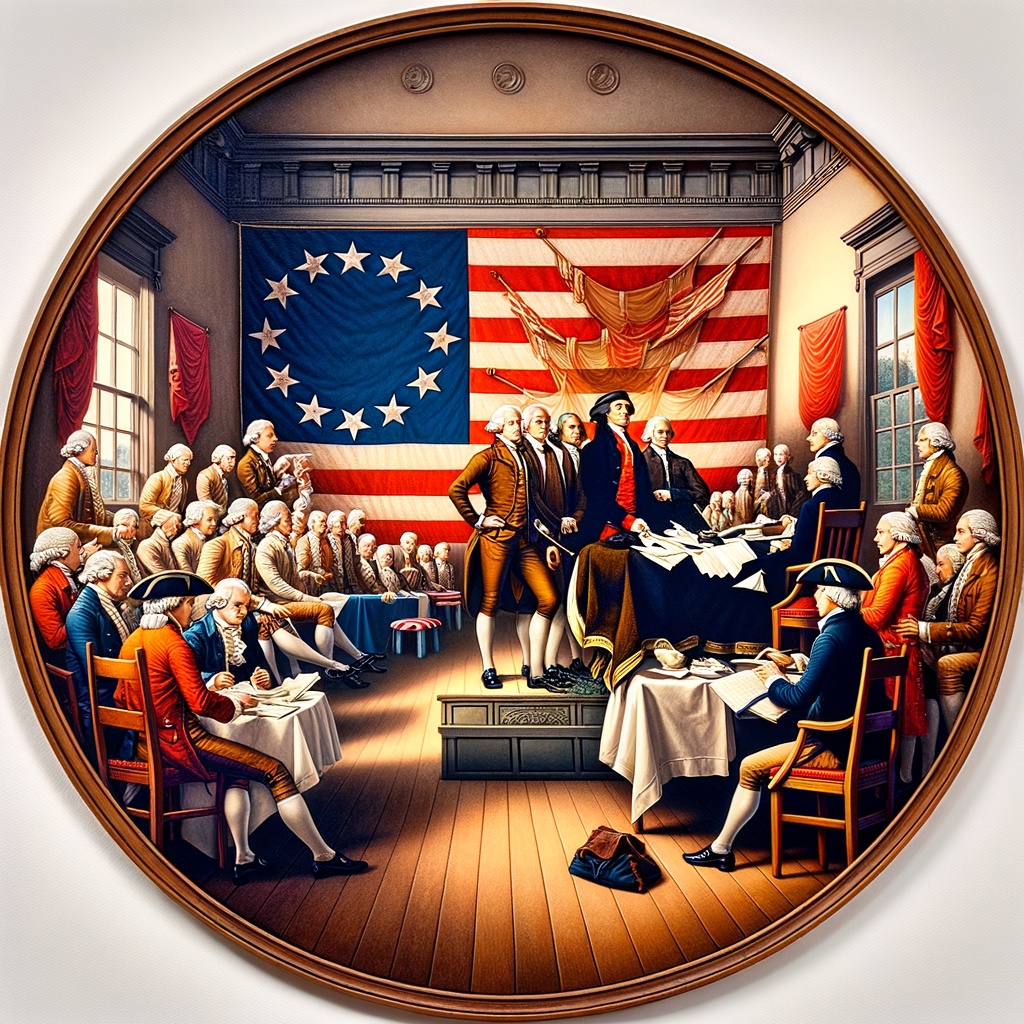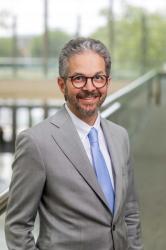As we approach the 250th anniversary of American independence in 2026, what exactly will Americans be celebrating? The 1619 Project rejects 1776 as an important moment in the history of liberty. Instead, it calls the year 1619 America’s “true founding,” arguing that American history has been marked not by the growth of liberty but rather by oppression.
Self-styled “post-liberal” conservatives see the American founding as the flawed product of the radical, secular Enlightenment. They argue that the American experiment in ordered liberty was already rotten the moment Jefferson put pen to paper in 1776.
As I found out recently at an American Enterprise Institute seminar entitled, “America at 250: Religion and the American Revolution,” AEI still finds much to celebrate in the American founding. This is no surprise, since Michael Novak, author of The Spirit of Democratic Capitalism, spent three decades at AEI as George Frederick Jewett Scholar in Religion, Philosophy, and Public Policy writing about religion and public affairs.
The seminar I attended featured two panels, one moderated by Yuval Levin and the other by AEI senior fellow Adam White. Panelists explored the role religion played in the American Revolution.
Jane Calvert, founder and chief editor of the John Dickinson Writings Project, began the discussion with a strong case for Quaker influence during the revolution by examining Dickinson’s approach to the controversies of the 1760s and 1770s. Quakers believed “all people” could be saved, according to Calvert, because they were equal “to the degree they experienced God’s light.” Their constitutionalism eschewed violence but also took into account political development. Quakers preferred reform to revolution. Their willingness to be martyred for religious liberty, however, led civil governments to see them as dangerous.
Dickinson was not formally a Quaker, but as a Pennsylvanian he was culturally so. In his critique of the British government, he treated the empire as the equivalent of a Friends meeting writ large, wherein one could have “disagreement without obstructionism” in a democratic setting. Dickinson’s influential revolutionary writings, like the Letters from a Farmer in Pennsylvania, made natural rights arguments and proposed civil disobedience as the best means of protesting British oppression.
This is a compelling portrait of Dickinson, one that Calvert fleshes out in her books on the man. It is important to remember, however, the complexity of Dickinson’s thought, as noted by M.E. Bradford: “Dickinson labored to define the quarrel with the imperial government in England in terms of the common political heritage in the English constitution and the prescriptive rights of Englishmen.”
Meir Y. Soloveichik of Yeshiva University addressed John Adams’ providentialism. In the field of Adams hagiography, Soloveichik comes in second only to David McCullough. Adams, according to Soloveichik, saw the revolution as part of “a providential plan” for the spread of liberty. This was, he thought, a continuation of his Puritan ancestors’ goals in coming to America.
By using Jefferson as a foil to Adams, I believe Soloveichik draws too stark of a line. He said that Jefferson was less providential than Adams and more insulting to religion. Yet a reading of Adams, including his correspondence with Jefferson, reveals him to be as much if not more irreligious than Jefferson. Jefferson emerges as more providential due to his belief (which Adams lacked) in the exceptionalism of the American republic.
The best treatment of the religious milieu in which Jefferson operated is to be found in panelist Thomas Kidd’s Thomas Jefferson: A Biography of Spirit and Flesh. In his AEI presentation, Kidd stressed not one person’s or religious group’s influence but convincingly argued that Americans in 1776 were so steeped in “all kinds of biblical assumptions” that all the founders, even the “skeptical and deistic” ones, appealed directly or indirectly to scripture and to God.
“Americans,” Kidd said, were “looking for biblical warrant and hoping for divine support.” The founders were “not all the same in their personal faith,” but most shared a “common biblical tradition,” sense of divine sanction, and belief in providentialism. Even for Jefferson, religious rhetoric was the chief means of arguing that “all men were created equal.”
The second panel featured Vincent Philip Muñoz, Tocqueville Professor of Political Science at the University of Notre Dame, and Michael W. McConnell, Richard and Frances Mallery Professor of Law at Stanford Law School. McConnell provided a survey-class-like overview of several Protestant denominations whose ecclesiology, he said, helped shaped how Americans approached their separation from England. Muñoz went much deeper into what was revolutionary about the Revolution, admitting he wanted “to trigger my post-liberal friends.” I hope that his “post-liberal friends” continued to listen after his trigger warning, because Muñoz went head-on against the reductive interpretation of the American Revolution as a secular liberal event.
Muñoz also argued that while the American founding was animated by a political revolution, it was not hostile to religion or to religious truth. The founders’ system of authority, based on consent, was modern, however.
This is true as far as it goes. But Muñoz might have addressed the complexity of what it means to be “modern” in this context. For example, “consent” is not an exclusively “modern” political creation. The idea of rule by consent can be found in the sixth-century Code of Justinian. We can trace the rise of consent during the 12th and 13th centuries in monasteries, religious orders, and universities. Thomas Aquinas formulated it this way: “The directing of anything to the end concerns him to whom the end belongs.”
Speaking of Aquinas, Muñoz correctly pointed out that the American system, for all its Lockean appearance, was rooted in classical metaphysics and the Thomistic ontology that “being and goodness are convertible terms and that human excellence is found in uncovering what we truly are.” This anthropology had a profound impact on the founders’ thinking about equality and also shaped their belief in religious freedom.
Yet the founders’ commitment to religious freedom does not imply indifference to religion or “a commitment of neutrality toward religion.” The state is limited because it recognizes “the domain of religious authority.” This is very different from the neutrality that some say is “a central tenet of liberalism.”
Indeed, asserted Muñoz, the founders recognized that religious freedom is a human right and that religion cannot be coerced by a state. Religion, in fact, limits the state, and a limited state protects not just our rights but also our duties.
As a whole, “Religion and the American Revolution” showed the America of 1776 to have been a biblically literate culture that allowed even non-Christians and skeptics to allude to the Hebrew and Christian scriptures without the need of quoting chapter and verse. At the same time, as Levin pointed out in his comments, Americans seamlessly integrated this biblical worldview with natural law thinking and contemporary enlightenment language about reason.
As we approach 2026, do we still live in what Kidd calls a common rhetorical culture steeped in the Bible? Can we still allude to scripture and the Judeo-Christian heritage of Western civilization to defend the foundations of ordered liberty and expect our arguments to convince Americans that the principles of their country’s founding are worth conserving?
The answers to these questions is about more than mere strategy. It is the chief barometer we must use to gauge the commitment of contemporary Americans to religious, political, and economic liberty.

